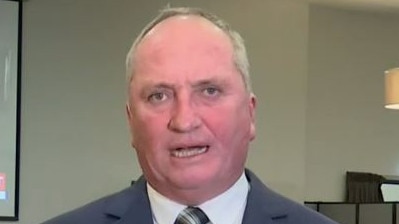
The test will be whether the Coalition accepts Labor’s mandate on climate change.
Australia’s teal revolution, resulting in the loss of up to six moderate Liberal MPs in inner-city seats, must force the opposition to review the adequacy of its 26-28 per cent 2030 emission reduction targets.
Arriving at a new target while maintaining party discipline and keeping the Coalition intact should be a priority for the leaders of the Liberal and Nationals parties.
A new formula is needed.
Despite nine years in government, the Coalition never fully resolved its internal differences on climate change. The rebellion against the national energy guarantee and demise of Malcolm Turnbull is the standout example.
Labor’s plan to legislate its 43 per cent emissions reduction target by 2030 now threatens to reignite that internal conflict at a time of historic weakness for the conservative side of politics.
There are strong arguments for the opposition to support the legislation and embrace the 43 per cent target. There are also risks. For one, would the Nationals support such a major policy recalibration?
Leading Liberal moderate Simon Birmingham suggested on Sunday that the Nationals should shift position for the greater good. “I would hope we can continue to work together,” he said. “But, obviously, the National Party need to look at where the Liberal Party has felt this pain and reflect upon how it is that we, together, can manage to form majority government in the future and what will be necessary for us to do so.”
Conservative voices in the parliament and commentariat are also warning against a lurch to the left, saying inner-city voters who abandoned the Liberal Party will not be reclaimed by the pursuit of more ambitious climate policies.
If a joint position on climate can be reached, the Liberal and National parties will need a policy solution that can straddle the divide between the regions and inner cities. This is an increasingly difficult task.
If Peter Dutton takes the Liberal leadership, he may be tempted to resist any radical change and this difficult task could be avoided – at least temporarily. Such a position would heighten the exposure of the Liberals to a second wave of the teal assault at the next election.
However, as Liberal leader Dutton could also be uniquely placed to increase the Coalition’s climate ambition while bringing conservatives with him. If he chooses to take such an approach, the Nationals would need to work with him.
It is unclear whether this could happen under Barnaby Joyce, who opposed adoption of a net zero by 2050 target and argued against it internally.
At some point, Liberals and Nationals will need to confront their differences on climate change and the conflicting political imperatives at stake on this issue for their increasingly separate constituencies.
The success of the teal revolution, the ongoing threat to moderate Liberal MPs and Labor’s push to enshrine its 2030 emissions reduction target in legislation mean this reconciliation could happen sooner rather than later.
This is why one of the real possibilities in the 47th parliament is a formal breaking of the Coalition.




Climate change will be the first key test of what Liberals and Nationals stand for in opposition, with the potential to transform the Coalition – or sever it.